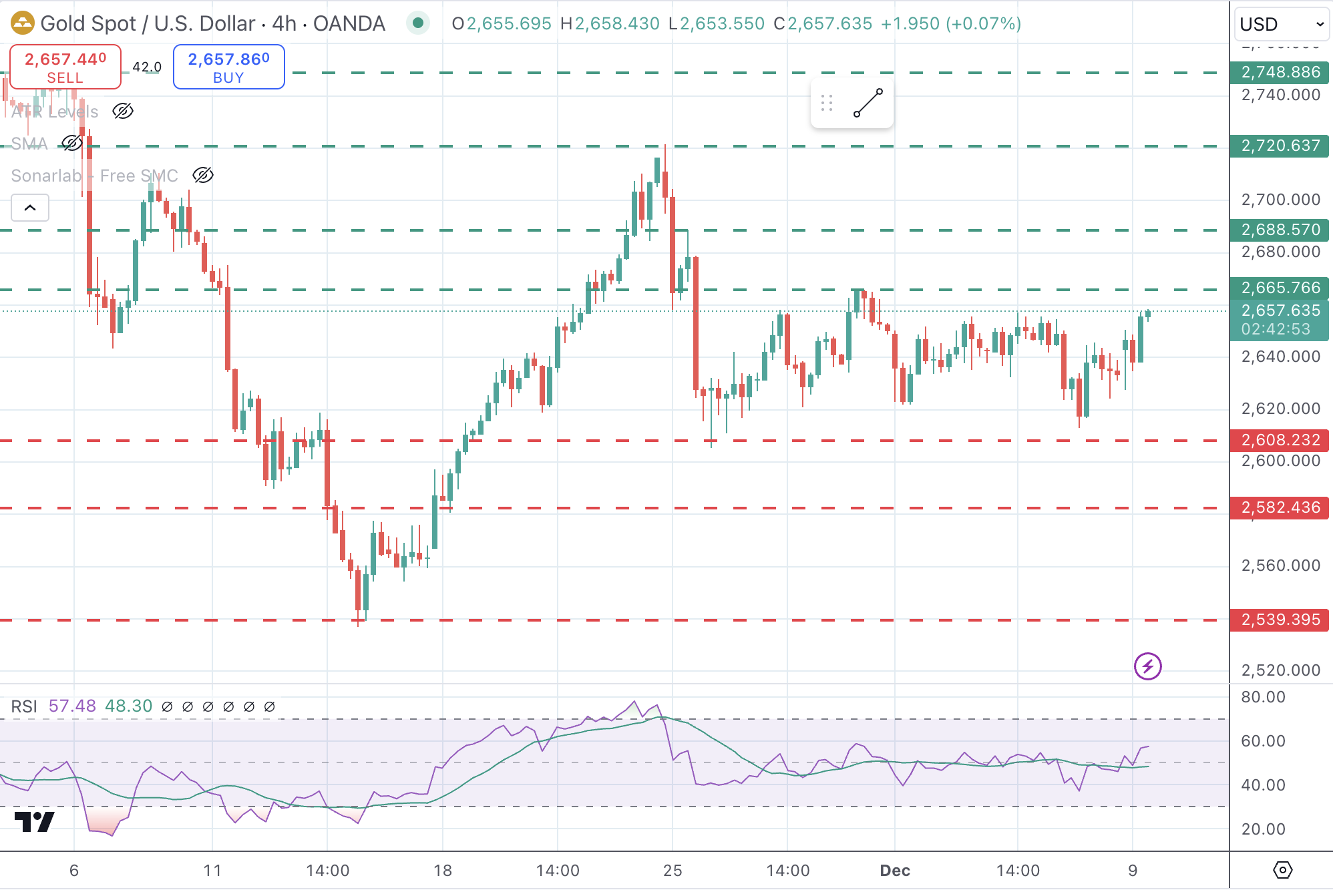Gold prices have seen a significant uptick in recent days, primarily driven by geopolitical uncertainties in the Middle East and expectations of a Federal Reserve rate cut. The precious metal, often seen as a safe-haven asset, has benefited from these factors.
Geopolitical Concerns Fuel Demand
The ongoing turmoil in the Middle East, particularly following the fall of the Bashar al-Assad regime in Syria, has heightened geopolitical tensions. Investors have turned to gold as a hedge against potential market volatility and economic instability.
China’s Gold Buying Resumption
Adding to the bullish sentiment, the People’s Bank of China (PBoC) resumed gold purchases in November after a six-month hiatus. This move by the world’s second-largest economy has further boosted demand for the precious metal.
Fed Rate Cut Expectations
While the US labor market remains robust, recent data suggests that the Federal Reserve may opt for a 25 basis point rate cut in its upcoming meeting. This expectation has weakened the US dollar, making gold more attractive to international investors.
Technical Analysis
Gold prices are currently approaching the top of a recent price channel, suggesting potential for further upside. Analysts believe the metal could test the $2,665 level, with potential targets of $2,690 and $2,720. However, if the price dips below the channel’s bottom at $2,620, it could find support at the November 25 low of $2,605.

Given the confluence of factors, including geopolitical risks, central bank policies, and investor sentiment, gold prices are likely to remain volatile in the near term. Investors should closely monitor developments in the Middle East, the US economy, and global financial markets to gauge the future direction of the precious metal.




